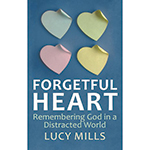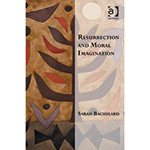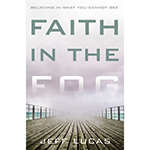Reviews – October 2014 - Reform Magazine
How to be busy, yet faithful
 Forgetful Heart: Remembering God in a
Forgetful Heart: Remembering God in a
distracted world
Lucy Mills
Darton, Longman + Todd
£9.99
This book was written to encourage those who have a deep-rooted desire to live out faith in the world, but are easily distracted and often forget the God we claim to serve. The book had a profound personal effect on me; I felt as though it was written just for me. As someone who has many calls on my time, and who can be guilty of putting my own spiritual growth at the bottom of priority pile, this book helped to remind me of that which I am prone to forget.
Forgetful Heart uses the language of “remembering” to ask how our faith impacts our daily living. Rooted in Scripture but written from a personal and devotional perspective, Mills challenges the reader to “remember God”.
The book is in four sections: The first, “A Modern Virus”, reflects on the world today, what claims our time and attention and where God gets forgotten; next, “An Ancient Dilemma” journeys though the Old and New Testaments illustrating how God’s people always were exceptionally good at forgetting, but also reminding the reader that they (and we) belong to a God who remembers; “Ripples of Forgetfulness” explores areas of life where memories may trouble us or where we may have forgotten our first love; and “The Art of Remembering” gives practical encouragement for our daily lives in areas such as relationships, worship, and remembering God in all areas.
Each chapter is bite-sized, interspersed with Bible verses and short devotional poems. Each chapter ends with some questions for personal reflection which allow the reader to apply what has just been read to their own personal life experiences and spiritual journeys.
Of the many books I have delved into to help nurture my spiritual life, this has been one of the most helpful. Beautifully and honestly written, it is full of hope that, despite our forgetful ways, our God remembers us and longs to be at the centre of our cluttered and disordered lives. If you, like me, struggle to remember God in the busyness of your daily living, make time to read this book.
Lucy Brierley is a United Reformed Church minister serving in Woking
___
Church history in a cup
 The Lacock Cup
The Lacock Cup
Naomi Speakman and Lloyd de Beer
British Museum
£5
Some objects move and amaze, and the British Museum’s Lacock cup is one such; it is an exquisitely elegant silver cup with a lid almost the same height – three minimally-gilded bands, topped with a gilded sphere. It was designed as a drinking cup (it is 14cm in diameter) and somehow survived intact from late medieval times.
Interestingly, fewer than 300 pieces of silverware survive from before 1520 – silver was easily refashioned or turned into coinage. The Lacock cup was probably originally commissioned by an aristocrat to grace the table at great feasts. This elegant and informative book explains how such objects were made by skilled goldsmiths and how they were used in late medieval England, with apt and beautifully reproduced illustrations.
What is so moving about the cup is that, at some point in its history, it was donated to St Cyriac’s parish church in Lacock. The authors explore the possibilities of donation. Lacock Abbey was “dissolved” (asset-stripped) by Henry VIII, and in 1539 William Sharrington purchased the estate and turned it into a private house. As patron of the living, he may have donated the cup; so might a member of another prominent local family, Sir Robert Baynard, in the 1630s when Archbishop Laud was encouraging a recovery of the beauty of holiness in parish churches. We can only speculate.
What we do know is that this cup was treasured, kept and honoured. If it was donated in the 1530s, it survived the rollercoaster despoliations and upheavals of England’s long Reformation. If given in the 1630s, it was an extraordinarily generous gift, given to the glory of God. Certainly it was treasured by the parish. It was lent to the British Museum in 1962, with the clause that it would be returned to the parish to be used at the four major festivals. The Museum finally acquired it last year, providing the parish with an exact replica by its expert craftsmen. To look at this cup is to see 500 years of English history and its reflection in the life of the Church.
David Cornick is general secretary of Churches Together in England and a fellow of Robinson College, Cambridge
___
The startling impact of real resurrection
 Resurrection and Moral Imagination
Resurrection and Moral Imagination
Sarah Bachelard
Ashgate Publishing
£60 (hardback)
This is an extraordinary book; unfortuntely, its price tag means that it is probably fated to be bought by university libraries and read by academics and students, rather than anyone with a serious interest in faith, discipleship, ethics, theology, the Bible and preaching – all of whom would find it enriching to the point of being transformative.
Bachelard brings the moral philosophy of Iris Murdoch, Raimond Gaita and others into critical dialogue with theology to explore what is distinctive about the Christian moral vision; she is convinced that Christian ethics that are rooted in the Resurrection contribute vitally and powerfully to a public moral vision of goodness that is not confined to some sort of “Christian club” (the Church), and that addresses directly questions such as immigration, religious extremism and sexuality.
Bachelard’s argument for the “having-happenedness” of the Resurrection of Jesus is a startling and convincing tour de force; yet, her purpose is not to “prove” the Resurrection – rather, her argument is that the Resurrection is the expression of God’s merciful, all-embracing love for the world.
The moral journey is not a return to some untainted essential self or lost paradise, but the journey through Cross and Resurrection – through death, failure, shame and woundedness – to the reconciliation of all things by the forgiving and gratuitous love that makes possible a new communion with God, ourselves and each other. We no longer need to defend ourselves against our failures and inadequacies, or shore up our lives against the threat of death or ignominy.
Resurrection opens up a new world – a new horizon against which to live and act (this is the “moral imagination” of the title; it provides the “new place” from which to source our life – God’s boundless generosity and grace; it makes possible a “de-selfing” on behalf of others that is both liberating and genuinely liberated.
This book charges ethics with theological seriousness and brings out the ethical character of all theology to ensure that faith is no dry assent to dogmatic formulae, but the lived practice of God-life.
Lawrence Moore is director of the Windermere Centre
___
Hope for “inadequate” Christians
 Faith in the Fog: Believing in what you
cannot see
Faith in the Fog: Believing in what you
cannot see
Jeff Lucas
Zondervan
£9.99
Jeff Lucas’ latest book provides a refreshingly honest look at the tensions between doubt and faith, shame and longing, that often lie at the centre of the Christian psyche. Using the pacey and energetic writing for which he is known, Lucas chronicles some of his own battles with depression that arose as a result of deep feelings of spiritual inadequacy. His willingness to be vulnerable helps defuse the claim that adversity results from a lack of faith; instead, Lucas exposes some of the deep insecurities that Christians often wrestle with: Feeling that God is absent, dealing with doubt and the Christian addiction to shame. Using the “breakfast on the beach” account from John 21, he explores some of the hopes and fears that Peter may have felt during this emotionally charged reunion with Jesus.
Faith in the Fog is an accessible, easy-to-read book which will appeal to a wide audience. Lucas steers clear of exegetical intricacies, choosing instead to concentrate on the lived experiences of the disciples as presented in the text. He helpfully includes the texts of the major scriptural references, mostly using the Message translation.
Some readers may struggle with the style, which is often influenced by Americanisms, or with the conservative leaning in his biblical interpretation, but to get hung up on either is to miss the point. This is a heartfelt epistle from a pastor who has learnt the hard way about how our Christian expectations so often exceed God’s; it reconnects with the truth that we are so very loved by God, not despite our inadequacies, but because of them.
Readers who are able to approach Faith in the Fog with honesty about their faith their and frailties will find it a rewarding and insightful read. The realisation that you are not alone in the fog is so reassuring as to be cathartic. The book deals with very real human concerns from the perspective of an equally real God – a God who delights in those who have not seen and yet choose to believe.
Tim Searle is a United Reformed Church minister serving within the South West Hants group of churches
___
This article was published in the October 2014 edition of Reform.






Submit a Comment